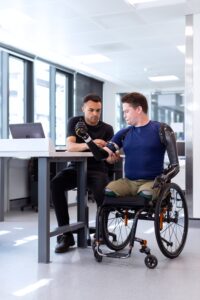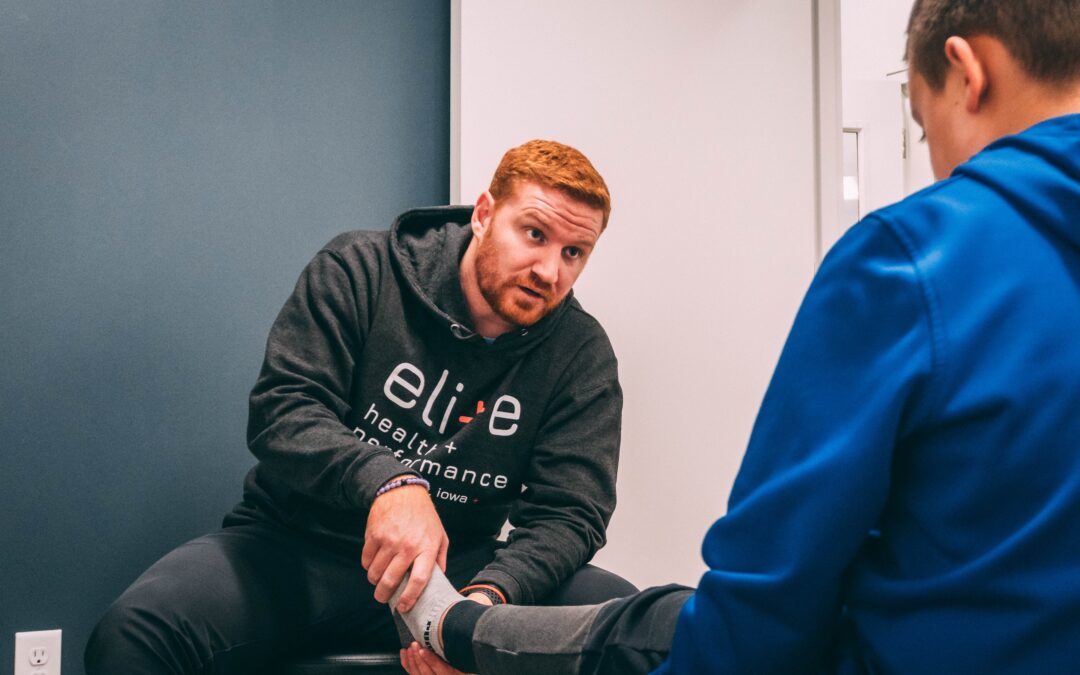The role of therapies at home is to speed up recovery from surgery, illness, or injury. Therapy forms include physical therapy, speech therapy, and occupational therapy. Receiving home rehabilitation allows you to develop independence and regain your productivity in activities of daily living.

Home Care Services: In-Home Rehabilitation and Therapy
Receiving in-home rehabilitation and therapy allows the patient to recuperate in a comfortable setting. Research shows that long-stay home care patients who have received rehabilitation at home have improved outcomes and lower utilization of costly health services.
Patients who benefit from this program have had:
- Neurological disorders
- Acute or chronic joint and back pain
- Multiple falls
- Cerebral vascular accidents
- Traumatic brain injury
- Knee or hip replacements
- Orthopedic surgery
Home Safety Assessment

Home Safety Assessment
Before starting rehabilitation and therapy, if using a home care agency, a professional and experienced case manager must conduct a home assessment. Home assessments include safety checks in the following areas:
- Walkways to and around the home
- Steps to the door
- Adequate lighting
- Driveway condition
- Ramps
- Garage
- Entry decks, porches, and landings
- Doors
- Entryways and vestibules
- Outdoor areas of concern
- Hallways
- Stairs
- House rooms (Bedrooms, laundry room, living room, dining room, family room, etc.)
- Bathroom
- Kitchen

Physical Therapy
Physical Therapy
The role of physical therapy is to help patients improve their stability, strength, increase range of motion and prevent falls or injury. The physical therapy program includes:
- A full assessment of your home for safety (Screening for falls).
- Exercise programs for improving balance, coordination, strength, and increased activity.
- Recommending the best mobility equipment and ensure that you can use it effectively and safely.
- Suggestions on ways to limit joint and muscle strains.
- Patient and caregiver education.
- Ways to navigate stairs or curbs.
- Safely getting in and out of bed or a chair.

Occupational Therapy
Occupational Therapy
The focus of occupational therapy is on your ability to perform a broad range of activities of daily living. It promotes independence by improving skills that are needed to perform these activities or alternatives.
A plan of care focuses on physical, social, and psychological well-being and environmental factors. Occupational therapy program includes:
- Retraining on the activities of daily living.
- Improvement of visual, cognitive, motor, and perceptual skills.
- Patient and caregiver education.
- How to use the specially adjusted equipment.
- Quick recovery through exercises, positioning programs, and home modifications.

Speech Therapy
Speech Therapy
Aimed at helping patients improve their breathing, swallowing, or speaking function, speech therapy focuses on the ability to understand words and use them to express yourself.
Speech therapy assists in improving communication with families and other caregivers. Additionally, also improves mental processing and language skills. Speech therapy program includes:
- Mouth, face, and neck muscle strengthening to avoid choking and produce better speech.
- Personalized swallowing therapies.
- Alternative communication ways like facial expressions and gestures.
- Ways to reduce communication frustration.
- Voice retraining.
- Processing and comprehending what people communicate to you.
- Reading, writing, calculations, and memory exercises.
Home health care agencies offer a full range of in-home rehabilitation and therapy. By assigning a qualified and professional therapist, you are guaranteed to heal faster and regain your independence.
Like and follow us on Facebook, Instagram & Twitter.
Subscribe to our YouTube Channel



